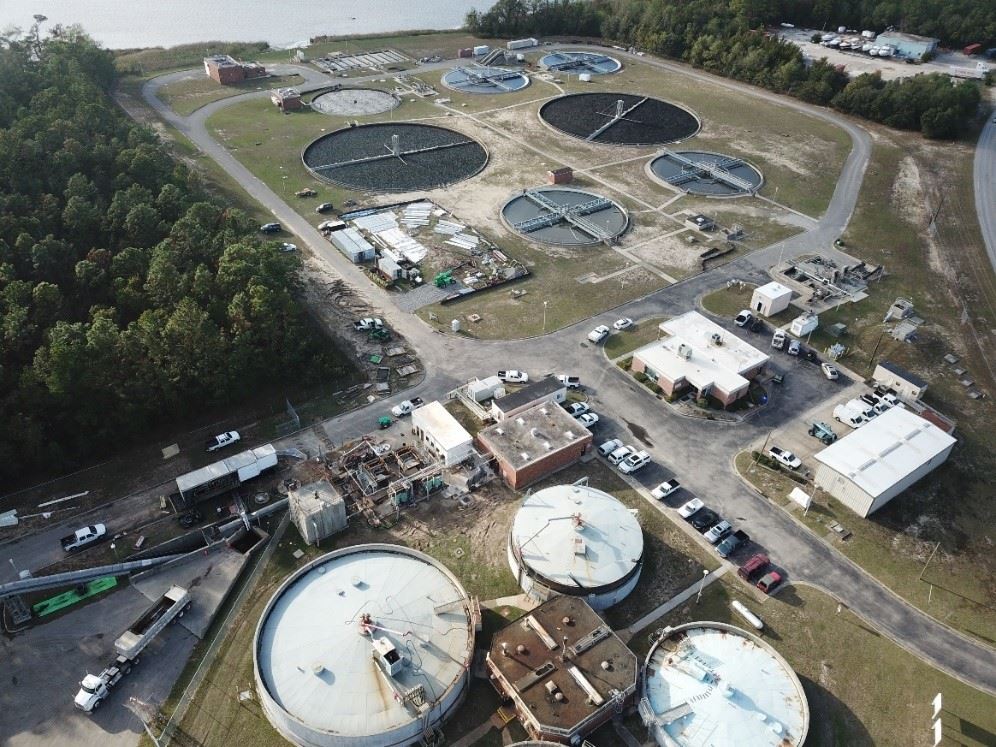
Coastal communities will see more than $55 million of the $238 million the state is awarding across North Carolina for drinking water, wastewater and stormwater projects, and lead service line inventories and replacements.
The water and wastewater infrastructure funding and stormwater planning grants will go to help pay for 114 projects in 52 counties statewide, including 28 construction projects, the governor’s office said Wednesday.
Supporter Spotlight
“This funding will help communities across the state access clean drinking water and set up critical infrastructures to better prepare for the future,” Cooper said in the announcement. “We have seen the positive impact these grants have made, and it is important for us to continue to provide more aid, especially for communities dealing with the impacts of forever chemicals.”
Cape Fear Public Utility Authority has been awarded $35 million to go toward its Southside Wastewater Treatment Plant replacement project.
Public Information Officer Cammie Bellamy told Coastal Review that the loans announced Wednesday are in addition to a separate $35 million in loans that the state awarded the utility last summer for the project.
The plant on River Road just north of Independence Boulevard was constructed in 1972 and while it has undergone numerous upgrades and expansions over the past 52 years, much of the plant’s infrastructure is nearing the end of its useful life, she said.
She explained that the project, estimated to cost $239 million, will fully replace the Southside Wastewater Treatment Plant, one of the two wastewater plants owned and operated by CFPUA, and expand its treatment capacity from 12 million gallons per day to 16 million gallons a day.
Supporter Spotlight
Construction is anticipated to begin in late 2024 or early 2025, with the project scheduled to reach completion by 2030.
“We are grateful for NCDEQ and the State Water Infrastructure Authority for awarding these loans, which will help reduce overall project costs for CFPUA’s customers,” Bellamy said.
Other notable coastal projects include $3.69 million for the Cherry Run Pump Station and 5th Street Force Main replacement in Washington as well as $365,000 for Jacks Creek Pump Station stormwater planning.
Ahoskie is to receive $4.16 million for work on its wastewater treatment plant, located in Hertford County, which is to receive $350,000 to have asset inventory and assessments, or AIAs, done on its northern and southern rural water districts.
The town of Hertford, in Perquimans County, is set to receive $4.84 million for a wastewater treatment plant rehabilitation.
Oriental has been awarded $2.97 million for improvements to its wastewater treatment facility.
Gates County is in line for $2.2 million for removal and replacement of lagoon lining, repairs on the spray irrigation field, installation of an emergency generator and Supervisory control and data acquisition, or SCADA, system, replacement of the chemical feed system and installation of a new flow meter, according to the governor’s office.
The county is also set to receive $328,000 for a lead line investigation study, and $383,000 for a water system AIA and $167,000 for a wastewater system AIA.
Jacksonville will receive up to $400,000 to develop a watershed action plan, looking at the impacts of stormwater on a watershed scale to minimize the impacts of stormwater on the New River.
Rocky Point/Topsail Water and Sewer District in Pender County has been awarded $400,000 for a study on treatment alternatives for per- and polyfluoroalkyl substances, or PFAS.
Tyrrell County is getting $255,000 for an assessment of its water system, and Bald Head Island is to receive $350,000 for stormwater planning.
North Carolina Department of Environmental Quality’s Division of Water Infrastructure reviewed 275 eligible applications from 75 of North Carolina’s 100 counties, requesting $2.29 billion.
The State Water Infrastructure Authority approved the awards Tuesday during its meeting. The authority is an independent body with primary responsibility for awarding federal and state funding for water infrastructure projects.
Funding came from state and federal funds, including the State Revolving Funds that provide low-interest loans and Principal Forgiveness loans, and through Bipartisan Infrastructure Law.
Cooper’s office also announced that the application period for the Spring 2024 funding round for water, wastewater and stormwater infrastructure projects opens Tuesday, Feb. 27, and ends at 5 p.m. April 30. Funding application training for this round will be provided through five in-person statewide sessions Feb. 27 through March 8, with a virtual option. The training session time and location schedule is available on the DEQ website.







